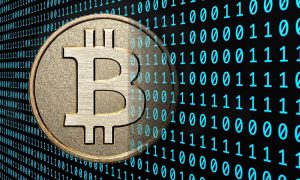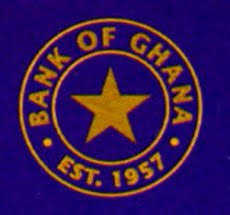Digital and Virtual currencies in Ghana: Did the Bank of Ghana miss the road?
 The Bank of Ghana in a recent notice[1] headed “Digital and Virtual Currency Operations in Ghana” sought to clarify the Ghanaian position on digital and virtual currencies in Ghana.
The Bank of Ghana in a recent notice[1] headed “Digital and Virtual Currency Operations in Ghana” sought to clarify the Ghanaian position on digital and virtual currencies in Ghana.
Significantly, the notice informed the general public that operations in digital and virtual currencies are illegal and “… activities [operations in digital and virtual currencies] are not licensed under the payment systems act, 2003 (Act 662)”. Please keep in mind “payment systems”. We will come back to it. The notice went on to say that “a revised payment systems act referred to as the payment systems and services bill will be considered by Parliament within the next month. This revision should bring the electronic payment space up to date to international standards and aligned with the evolving electronic payments landscape.” Write these somewhere – revised payment systems act and electronic payments.
The notice has since been interpreted differently across the media. A number of newspaper reports have said that cryptocurrencies will soon become legal in Ghana with the passage of the revised payment systems act[2]. The daily graphic, for instance, stated that “All mediums of exchange in the country must be approved by the Bank of Ghana and there is currently a Settlements and Payments bill before Parliament which will cater for the use of cryptocurrencies in the future.” Is that really the case?
It is clear that we are all none the wiser with the issue of the notice. As a result, it has become necessary to re-examine the details contained in the BOG notice.
Are digital and virtual currency operations illegal in Ghana because of the Payment Systems Act?
At least, this is what the Bank of Ghana says. Whiles the BOG may not necessarily be wrong, the primary reason why digital and virtual currencies cannot be used in Ghana has very little to do with payment systems. In fact, there is a more fundamental reason for that. And it is that virtual and digital currencies do not qualify as legal tender. The legal tender test must first be passed before any meaningful discussion can be had about payment systems. The Bank of Ghana could and in fact should have simply said that the operation of these currencies are illegal because virtual and digital currencies are not considered as legal tender and therefore as a medium of exchange in Ghana. Period. Payment systems are simply [read this bit in slow motion] p-a-y-m-e-n-t s-y-s-t-e-m-s. They enable payments. They make payments happen. So think of your cheque. Your ATM. Your Credit and Debit Cards. Your mobile money transfer application. Your SWIFT transfers. Your bankers’ draft- They enable you to pay. They are not money in themselves. These payment systems have an inbuilt assumption. And the assumption is that whatever is in there is money (in a different and probably convenient form).
And so what is legal tender?
It is quite simple. Legal tender means currency notes and coins issued by the central bank[3] as well as foreign exchange[4]. In the Anti-Money Laundering Act, 2008, currency is defined as coins, money, or notes of the republic or of another country that is designated as legal tender and that circulates as and is customarily used and accepted as a medium of exchange in the country[5]. The Act also acknowledges travellers’ cheques and other financial instruments denominated in the currency of Ghana or in foreign currency as currency. As a result, unless “whatever” that is being held out as a currency is cedis (note or coin), foreign exchange or something denominated in cedi or foreign exchange, it dares not rear its head up as currency. And by extension, cannot properly have a place on a payment system.
So did the revised payment systems act come to the rescue?
Sorry to burst your bubble. No, it did not. Clause 1 of the bill says that the future Act will apply to (a) banks, (b) specialized deposit-taking institutions (c) dedicated electronic money issuers (d) payment system providers and (e) the affiliates of banks, specialized deposit-taking institutions, financial holding companies and their agents. Of interest, the future Act states that the application of the revised payment systems act will be confined to and read together with the Bank of Ghana Act 2002 (Act 612), the Companies Act, 1963 (Act 179), the Bank and Specialized Deposit Taking Institutions Act, 2016, the Electronic Transactions Act 2008 (Act 772) and the Bills of Exchange Act, 1961 (Act 55). None of these Acts define or deal with digital and virtual currencies. The Revised Payment Systems bill goes as far as stating in Clause 27(2) that “airtime shall not count as electronic money and thus cannot be used for permissible transactions under this act.” In sum, if the item is not in Ghanaian or foreign currency or something denominated in Ghanaian or foreign currency, forget it. It cannot be channeled through a payment system (even under the revised payment systems act).
And when you make time to go through the revised payment systems act, please don’t confuse electronic money with digital and virtual currencies. They are not bedfellows in any way. Electronic money is simply monetary value that is either stored electronically or magnetically. Remember it is money. And it must have passed the legal tender test. And oh, they are tied to the apron strings of the central bank. Digital currencies have no such reputation. Think of them as the rogues and misfits in the money world. They provide a means to transfer value between two parties without needing an intermediary (peer-to-peer is a cool way of saying it). Digital and virtual currencies operate with no central bank authority and their issue is carried by collectively by a distributed network[6].
The Central Bank’s real message
In conclusion, the Central Bank missed the road. The BOG’s real message was simple. Forget about cryptocurrencies and all of its extravagance. Choose electronic money or any of the traditional payment means. If it were otherwise, why would the BOG conclude its notice by strongly encouraging the public “to do business with only institutions licensed by the Bank of Ghana to ensure that such transactions fall under [its] regulatory purview”? It is actually another way of saying that ditch red meat for chicken or fish. It is that simple.
[1] No.BG/GOV/SEC/2018/02
[2]https://www.graphic.com.gh/business/business-news/bitcoin-is-illegal-bank-of-ghana.html myjoyonline.com/business/2018/january-22nd/bog-cautions-public-on-use-of-bitcoin-in-ghana.php
[3] Bank of Ghana Act, 2002 (Act 612), Section 41
[4] Interpretation Act, 2009 (Act 792) Section 69 Foreign exchange is “currency notes, bank notes or coins other than the currency of the republic, which are legal tender in other any country and are convertible into currency which is legal tender in any other country”. See also the Public Procurement Act, 2008 (Act 663), Section 98; Foreign Exchange Act, 2006 (Act 723), Section 33.
[5] See Section 51
[6] See https://www.gibsondunn.com/wp-content/uploads/documents/publications/Lee-Long-McRae-Steiner-Handler-Bitcoin-Basics-Business-Law-International-Jan.2015.pdf; http://publications.jrc.ec.europa.eu/repository/bitstream/JRC105207/lbna28386enn.pdf; https://www.bloomberg.com/news/articles/2017-12-15/what-the-world-s-central-banks-are-saying-aboutcryptocurrencies;http://www.riksbank.se/Documents/Rapporter/POV/2017/rap_pov_artikel_6_170120_sve.pdf




Good read